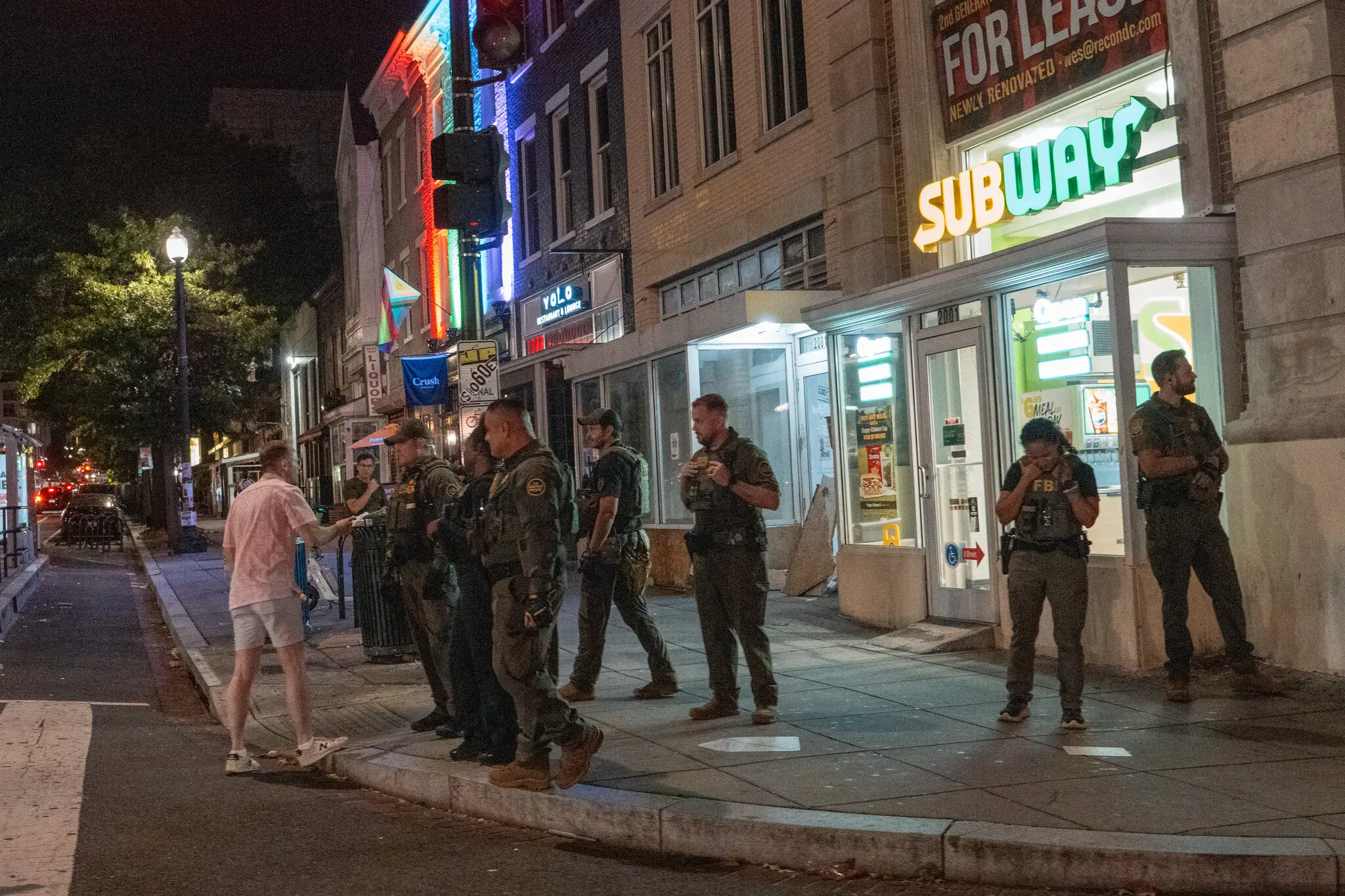A Rare Grand Jury Rebuff in the Nation’s Capital
The refusal by a Washington, D.C. grand jury to indict Sean Charles Dunn—charged with throwing a sandwich at a Customs and Border Protection agent—breaks with normal prosecutorial patterns. Prosecutors usually control grand jury proceedings, making failure to secure an indictment highly unusual.
This case marks a rare legal rebuff, especially in the context of the Trump administration’s “crime surge” in Washington that saw aggressive federal enforcement across the city.
The Incident That Sparked National Attention
On August 10, Sean Charles Dunn—then a DOJ paralegal—approached federal agents near a Subway on 14th Street, hurled expletives and labeled them “fascists,” then flung a submarine sandwich at an agent’s chest before fleeing.
Body-worn footage captured the bizarre moment, and the video quickly went viral. The White House amplified the spectacle by sharing footage of Dunn’s arrest, intensifying the political fallout.
Trump’s Law-and-Order Push Meets Legal Limits
The indictment attempt was part of President Trump’s intensified enforcement campaign in D.C., portrayed as a crackdown on rising crime—even as police data showed a decline. Over 1,000 arrests followed his August 11 order to flood the capital with officers.
But this federal overreach is facing growing resistance—grand juries and at least one judge are pushing back, citing civil liberties and due process concerns. One judge lambasted certain prosecutions as deeply flawed.
“Indict a Ham Sandwich”—But Not This Time
A well-worn adage in U.S. legal circles suggests prosecutors can get a grand jury to “indict a ham sandwich,” reflecting their control over evidence presentation. That such a routine step stumbled in this case reflects the case’s symbolic weight.
This is the second recent high-profile indictment failure. Prosecutors also failed three times to indict Sidney Lori Reid in a separate case, ultimately reducing her charge to a misdemeanor.
Political Fallout and Local Tensions
Dunn’s firing by Attorney General Pam Bondi, who cited his behavior as emblematic of the “Deep State” resisting DOJ reforms, added political drama.
Meanwhile, D.C. Mayor Muriel Bowser, while acknowledging crime reductions, warned of eroded trust between residents and federal forces. The Guardian
What Comes Next? Legal Uncertainty and Public Debate
Prosecutors have up to 30 days post-arrest to pursue another grand jury trial or lower the charge to a misdemeanor. It’s unclear what path the U.S. Attorney’s office will now choose. Reuters
Meanwhile, the episode has galvanized discussions on censorship, federal overreach, and the polarized clash over law enforcement’s role in the Trump era—and may influence how future protest-related incidents are prosecuted.
Conclusion
In a legal system where grand Jury indictments are often seen as procedural formalities, the refusal to indict the “sandwich thrower” stands out as a rare judicial check on prosecutorial zeal. It’s a moment that speaks volumes about political tensions, civil liberties, and the legal limits of Trump’s law-and-order playbook.
As legal proceedings play out—whether through renewed indictment attempts or plea bargains—this case has already left an indelible mark on public debate. With prosecutor strategies under scrutiny and civic trust hanging in the balance, its implications may echo long beyond courtroom doors.
“Subscribe to trusted news sites like USnewsSphere.com for continuous updates.”





